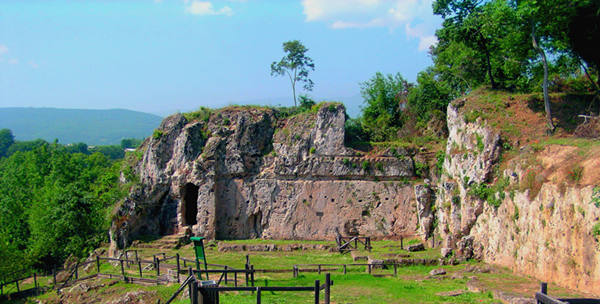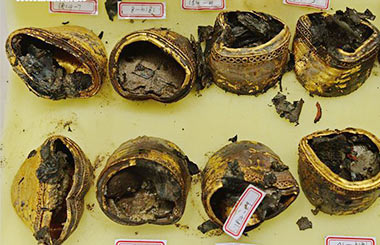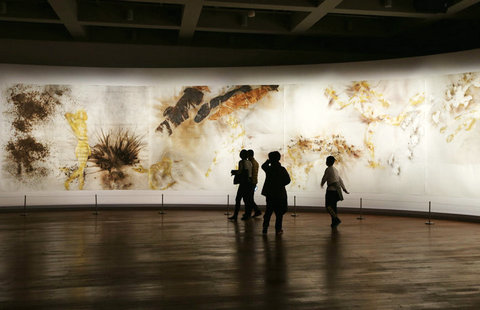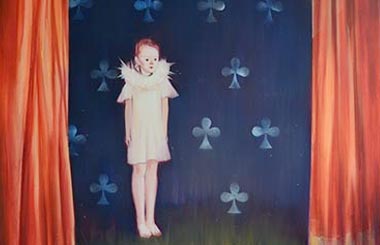The magical woods where Aristotle lived with nymphs
By Erik Nilsson ( China Daily ) Updated: 2015-12-28 08:46:25 |
|
Few Greeks even know the country hosts the ruins of Aristotle's school.[Photo provided to China Daily] |
Welcome to the land of the nymphs-the enchanted forests that clutch the ruins of Aristotle's School.
Mieza's magical woodlands are where Greece's nubile nature divinities, the West's great sage and Macedonia's world conqueror, Alexander the Great, cohabitated millennia ago.
Their cultural and corporeal legacies still do.
That's no accident.
Alexander's father, King Philip II, believed the Nympheon-the holy woodland populated by damsel deities who animate life-was the perfect place for the philosopher to train his 14-year-old and Macedonia's young aristocracy.
(The dynasty had a proclivity for drawing clout from the deific. It proclaimed the sons of the gods' king, Zeus, among its founders.)
Aristotle and his students slept, cooked and studied in caves. They extracted an austere yet enlightening existence from divine wilderness.
He taught Alexander and other aristocratic kids ages 12-18 politics, ethics and rhetoric. They also studied applied skills, such as hunting, wrestling and combat.
Such a tween-boy-nobility-without-nannies situation-palace brats surviving in isolated mystical woodlands while unlocking the universe's secrets-would today make for great reality TV.
But the approach worked in real life.
It transformed human history.
Alexander built one of the world's farthest-sprawling empires within two-dozen years after graduating at 17.
(That would have made for even greater TV.)
Visitors today can visualize the scene in person, rather than view a boob-tube version.
A reminder of more recent history is the barred security door bolted to the most accessible cavern's outside frame. Syrian refugees earlier this year took shelter in the cavern, likely without any inkling of its archeological importance, tourism officials explain.
Yet it's not only the ruins but also the ecology that enraptures.
Hikers who wander the timberlands today will still understand the ancient suspicion of sanctity.
One could be forgiven for wondering if nymphs still flit among its foliage.
Especially when local musicians perform beneath full moons. (The site is open 24/7.)
Tourism authorities are vying to entice more visitors from the Middle Kingdom through such channels as Chinese-language materials, yet few Greeks even know the school still (largely) stands, although it features prominently in their history books.
More travelers from home and abroad are familiar with Aristotle's hometown, Stagira, which ironically remains because of the school.
Phillip II was so grateful to the polymath for coaching his son that he rebuilt the city, which he'd razed during conquests, and released its enslaved populace.
Like the academy, Stagira's ruins are draped in foliage. Its flora is so celebrated that it's a treasure trove not only for archaeologists but also for botanists.
Foxes and white pigs trot through the woods that wrap the ruins perched on the Liotopi Peninsula.
About 20 beaches, many virgin, ornament the cape.
The wilderness clasps buildings' nubs-only about 7 percent of ancient Stagira has been unearthed.
Visitors can hike among fortifications, sacrificial platforms and religious edifices.
They can trek through the agora (the ancient shopping center) on Aristotle Boulevard near the stoa (arcade) that hosted philosophical debates.
Another area cratered with basins served either as public toilets or as a plant for grape stomping to produce wine. (There was almost certainly-at least hopefully-no confusion about this during the city's heyday.)
The houses' foundations offer insights into ordinary people's private lives.
Sometimes very private. Stone phalluses used as sex toys were found here-archaeologists explain the men were often away at war-and houses had men-only rooms for orgies and other indulgences womenfolk would, well, frown upon.
(That would have made for, um, triple-X TV.)
Two cemeteries flank the dead city-one for the rich and one for the poor.
Aristotle was buried in the city after death in self-exile.
He was accused of blasphemy for penning a poem about a friend in a style reserved for revering gods.
Texts from the 11th century reveal his body was brought to Stagira for internment.
Archaeologists hope continuing excavations-stalled by Greece's economic woes-will bring his bones to light.
Until then, Aristotle's legacy lives on-not only in philosophical texts worldwide but also in little-known physical ruins in Greek Macedonia's forests.
|
|
|
|
|
|
|
|






















 Raymond Zhou:
Raymond Zhou: Pauline D Loh:
Pauline D Loh: Hot Pot
Hot Pot Eco China
Eco China China Dream
China Dream China Face
China Face





